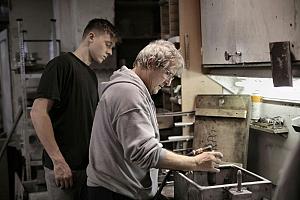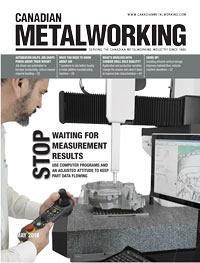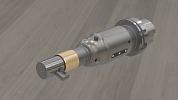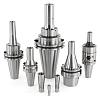- FMA
- The Fabricator
- FABTECH
- Canadian Metalworking
Automation helps job shops punch above their weight
Job shops use automation to increase productivity, reduce manual material handling
- By Nate Hendley
- May 29, 2018
- Article
- Automation and Software
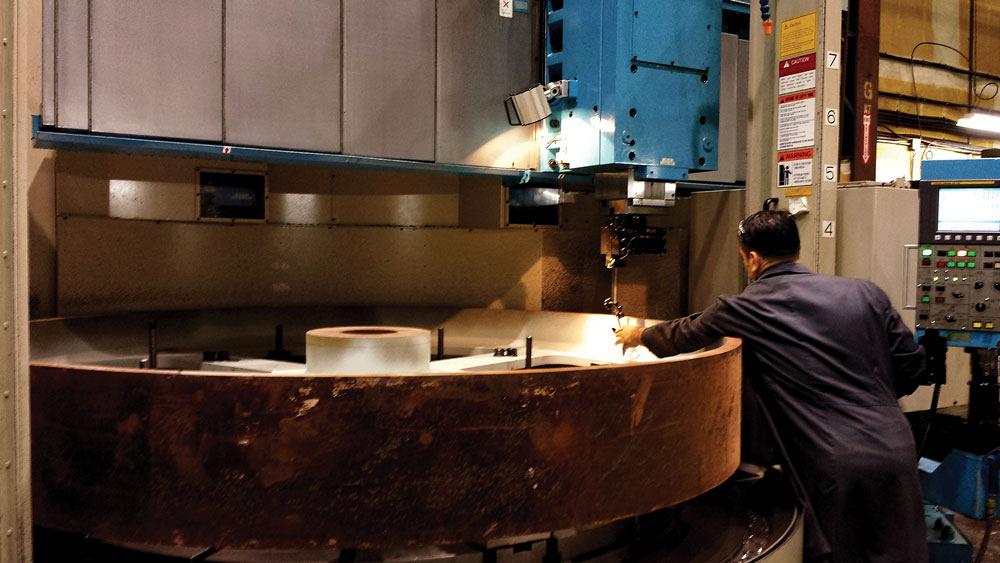
Large-scale turning projects like this 96-in. dia. bandwheel, help set Ellery apart from its competition. Photo courtesy of Ellery Manufacturing.
Job shops generally do high-mix, low-volume production with a focus on custom work. So, why should they bother automating their processes? After all, these shops aren’t mass producing millions of the same parts.
Experts offer two reasons: Automation can help job shops cope with the skilled-labour shortage while at the same time enhance productivity.
“Job shops are facing the same dilemma everybody is facing: lack of skilled people. So the requirement for them to automate is almost as great as the [big] players, like the automotive companies,” said Ray Buxton, general manager of Mazak Corp. Canada, Cambridge, Ont.
“To be very, very honest, in this industry, because of the lack of manpower, if you’re getting into machining, you’re going to have to start in some capacity automated, whether it’s CNC machines or an automatic pallet system if you’re doing smaller components. It’s intimidating to get into this industry as a manual machine shop. The work’s not there,” said Paul Ellery, vice president at Ellery Manufacturing, Surrey, B.C., which performs custom machining and fabricating.
Fortunately, automation options are becoming less expensive and more mainstream.
“We have quite a suite of different automation systems that are well-suited to the job shop,” said Buxton.
Many options available
Automation options include a combination of CNC machines, CAM and enterprise resource planning (ERP) software, robots, loading systems, and even industrial vending machines.
“Mazak’s automation systems come in many forms and levels. It can be as simple as adding a bar feeder to a lathe or a pallet changer to a mill,” said Buxton. “Many job shops may think that automation won’t work for them because they don't have high-volume production. But because material removal is much faster and predictable than changing over a bar size in a lathe, many shops today standardize on one or two bar sizes and produce multiple parts in very low batch quantities. They find that the cycle time and material utilization penalty is minimal compared to the savings of having a machine run constantly instead of changing over for each part.”
Other job shop automation options from Mazak include a range of bar feeders as well as overhead gantry robots. The company also offers RoboJob, a flexible, articulated robotic system that is suitable for small batches on either lathes or mills, added Buxton.
Mazak’s Palletech system, a modular, automatic pallet stocking system that can manage up to 16 machines, 240 pallets, and eight loading stations, also is a popular choice in job shops, according to Buxton.
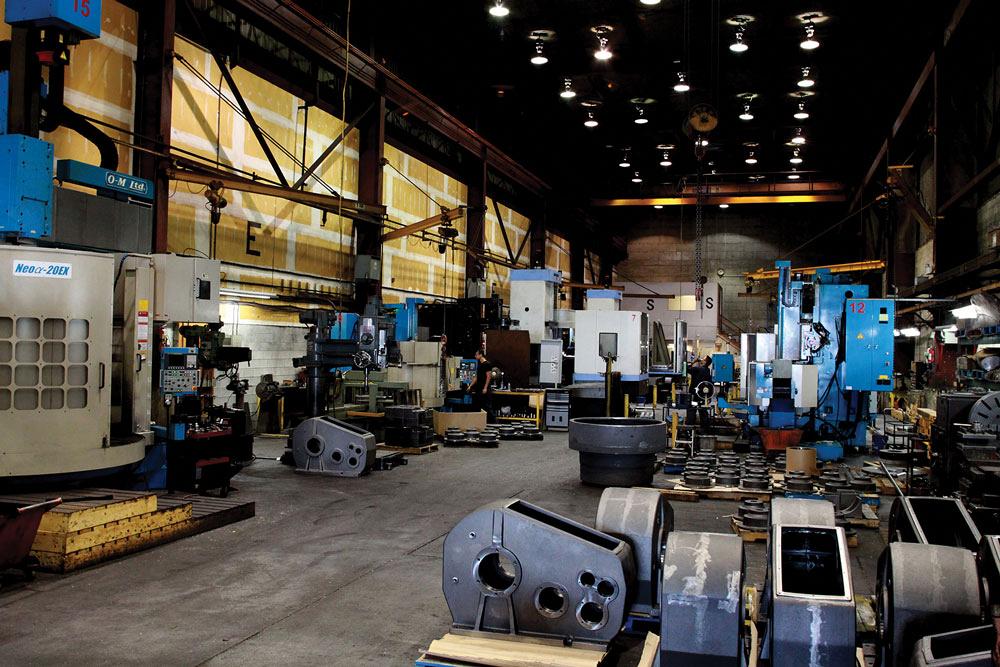
The shop at Ellery Manufacturing, Surrey, B.C., produces custom machined and fabricated work. Photo courtesy of Ellery Manufacturing.
“Mazak has more than 1,000 Palletech systems installed in North America alone, many of them in job shops. Recently Mazak has enhanced our offering of automated pallet solutions with the addition of the very compact MPP System, which can be coupled with our smaller horizontal and Variaxis 5-axis machining centres. At the EMO show last year, Mazak also introduced the Variaxis i-500 with Auto Work Changer,” said Buxton.
The newly introduced, small, automated Multi-Pallet Pool (MPP) system takes up to 18 pallets and is designed for shops with limited floor space.
“A large pallet system can take up a lot of space, which is why we came out with the MPP system. It is suitable for job shops because they are much more space-constrained than larger companies,” said Buxton.
A look inside a shop
Founded in 1978, Ellery Manufacturing started off with conventional machines but began switching to CNC machines a quarter-century ago. The company currently has 14 CNC machines, including Okuma and O-M turning centres, Toshiba and Doosan horizontal boring mills, and Haas vertical mills and horizontal machining centres. All CNC machines are connected to a central DNC system.
“DNC stands for distributive numerical control and basically is technology that allows us to network all our CNC machines to the workstations where our programs are produced. We then can use this network to quickly send programs to individual machines [or to multiple machines at the same time]. We also can use our DNC network to remove programs or update programs on-the-fly,” explained Operations Manager Nick Ellery.
The company also uses GibbsCAM 2016 software from South Carolina-based company 3D Systems as a complementary technology to the DNC network.
“GibbsCAM is our production software. It’s used for producing programs for our CNC machines, and all of our CNC machines are linked to our CAM system,” said Ellery.
The software has an enhanced visualization function, which is used when creating custom and standard thread cutting tools; the ability to select multiple contours for single operations; automatic calculation of spiral toolpaths for large pockets; and an auto choices feature to automatically calculate the radius and direction of connection cylinders.
Ellery also uses the E2 Shop System ERP program from Shoptech Software to streamline paperwork and automate administrative chores. This software is specifically designed for job shop environments.
“We implemented Shoptech E2 ERP in October 2015. We use this software to manage every step of the manufacturing process, including estimating, material ordering, production scheduling, quality assurance, shipping, and invoicing. The software also helps us manage our company policy and procedure documentation, maintenance records, employee records, and payroll. All related data (including CAD files and drawings) are backed up daily to an off-site data centre,” said Ellery.
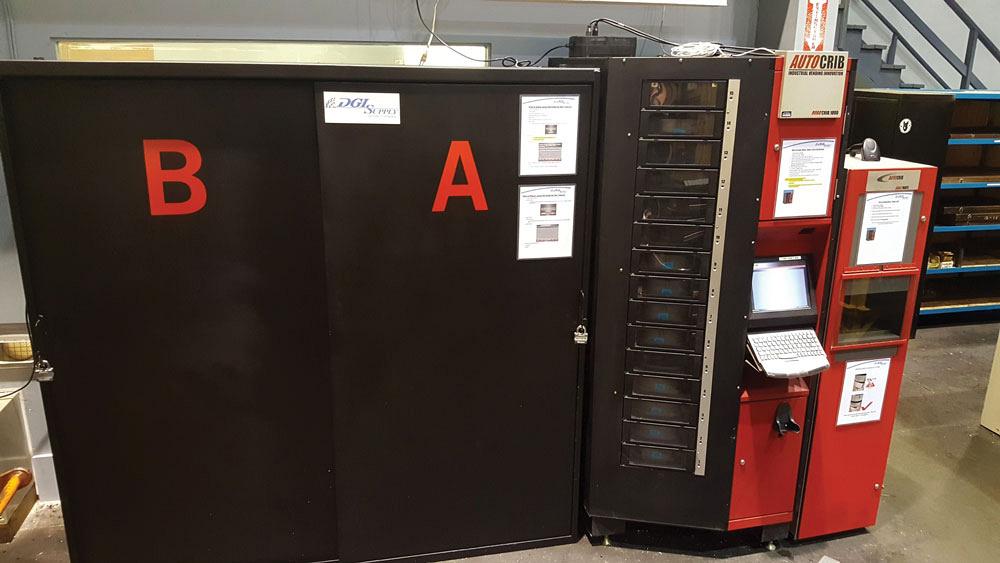
Ellery purchased an AutoCrib® system in late 2017 to store consumables, tools, and other shop supplies. Photo courtesy of Ellery Manufacturing.
The software also can automatically track orders, notify purchasing departments when inventory is low, send RFQs to multiple vendors, arrange schedules, gather and analyze production data, create back orders, and generate bills of lading.
Hit the vending machine
Another automation option for job shops comes in the form of industrial vending machines. At their most basic, such machines simply store consumables, tools, and other shop supplies. High-tech industrial vending machines, such as the systems made by California-based company AutoCrib®, are programmed to manage inventory electronically. Ellery had an AutoCrib system installed in late 2017.
“We currently use our vending system to store more than 500 items, including tooling, small hand tools, welding supplies, safety-related items, and shipping supplies. Smaller items such as inserts are stored in the actual vending machine, while larger items are stored in secured cabinets and designated storage areas located on the shop floor. Every item, regardless of where it is located, is tracked by our vending system,” said Ellery.
The system is designed to keep track of key items, and as the company gets low on a certain item, it automatically generates a purchase order.
“We probably realized a 25 per cent overall saving in tooling since we implemented that system, and that’s not counting [the reduction in time lost from] guys looking for tooling or downtime caused by running out of supplies,” said Ellery.
Reduce manual material handling
Like Ellery Manufacturing, Ontario Laser Cutting (OLC) in Tillsonburg, Ont., has also embraced automation.
“We use full automation on most of our lasers. The equipment has not only improved productivity, but has also helped with material handling and labour costs,” said OLC President Larry Stuyt.
OLC uses CNC laser cutters from Mazak, a Bodor T-A machine for tube cutting, and two Mazak U44 lasers for specialty jobs. The company does work for automotive, health care, military, agriculture, and general industrial customers.
“In our opinion, automation is a must because of increasing labour costs, higher rent costs, and lack of labour skills. Automation really helps with all these issues as well as many more,” said Stuyt.
Automation also enables job shops to punch above their weight.
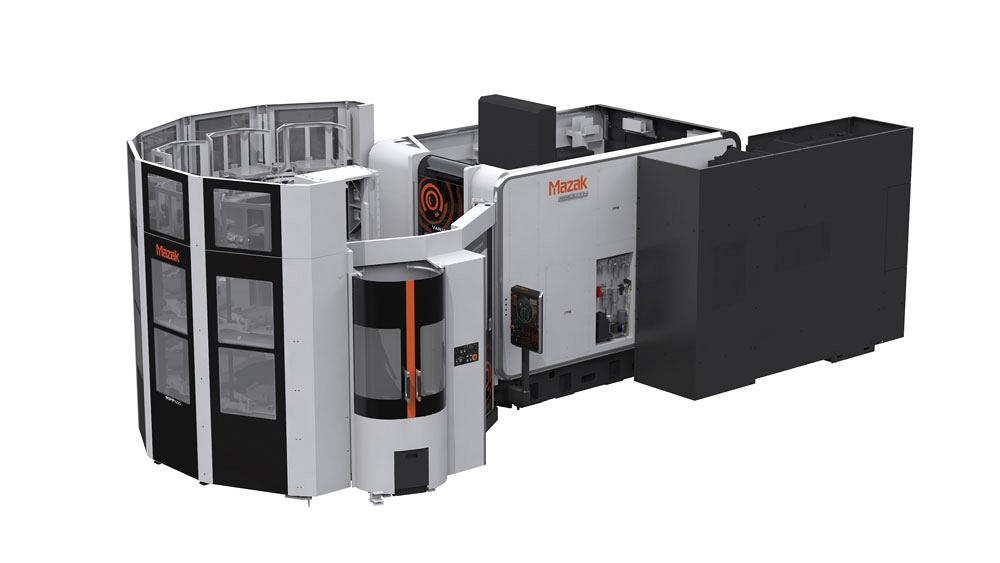
Mazak’s Palletech system, a modular, automatic pallet stocking system that can manage up to 16 machines, 240 pallets, and eight loading stations, also is a popular choice in job shops. Photo courtesy of Mazak Corp. Canada.
“When you’re looking at CNC machines, depending on the complexity, you’re looking at a machine that’s capable of doing anywhere from three to seven times what an individual can do. If you were doing straightforward simple turning, you might be looking at increases of tenfold,” said Paul Ellery.
The appeal of such productivity enhancement combined with the skilled-labour shortage makes it almost inevitable that job shops will adopt automation, he continued.
“Everybody is going to have to address automation somewhere in their business. We’ve addressed it by going to CNC. We have a staff of 25 [with 16 of those] in production. Those 16, combined with the equipment we have, essentially give us a working crew capable of doing [the same quantity of work of] 35 to 40 people,” said Paul Ellery.
Contributing writer Nate Hendley can be reached at nhendley@sympatico.ca.
Ellery Manufacturing, www.ellerymfg.com
Ontario Laser Cutting, www.ontariolasercutting.com
Mazak Corp. Canada, www.mazakcanada.com
About the Author
Related Companies
subscribe now


Keep up to date with the latest news, events, and technology for all things metal from our pair of monthly magazines written specifically for Canadian manufacturers!
Start Your Free Subscription- Industry Events
MME Winnipeg
- April 30, 2024
- Winnipeg, ON Canada
CTMA Economic Uncertainty: Helping You Navigate Windsor Seminar
- April 30, 2024
- Windsor, ON Canada
CTMA Economic Uncertainty: Helping You Navigate Kitchener Seminar
- May 2, 2024
- Kitchener, ON Canada
Automate 2024
- May 6 - 9, 2024
- Chicago, IL
ANCA Open House
- May 7 - 8, 2024
- Wixom, MI





